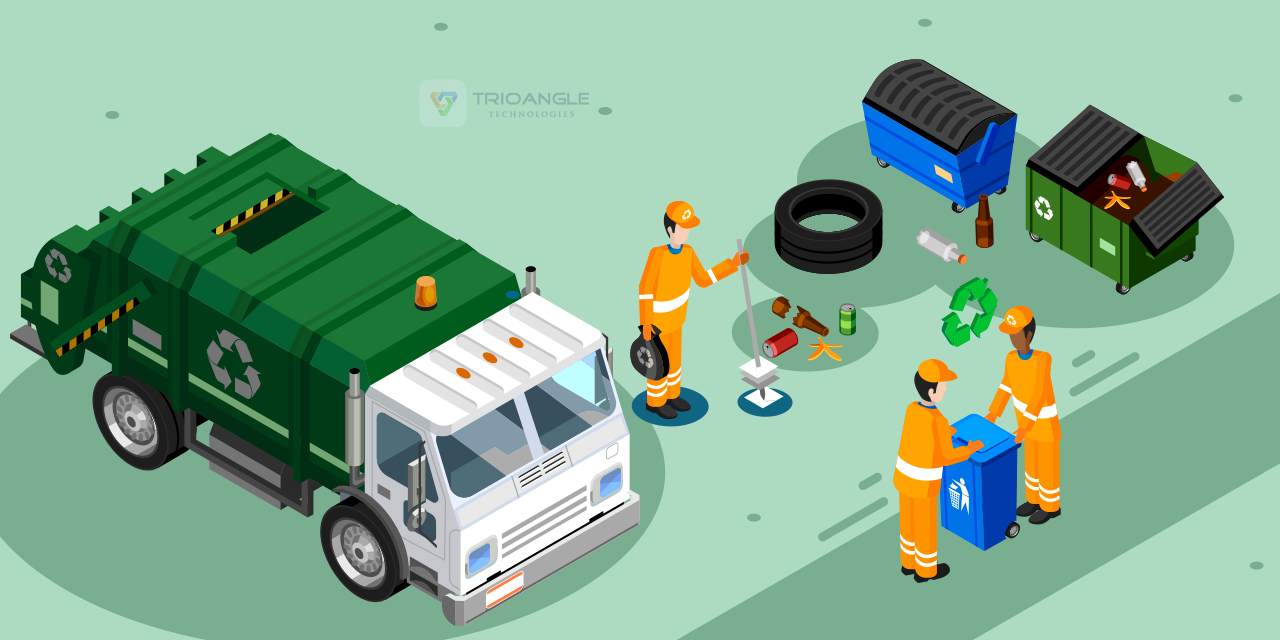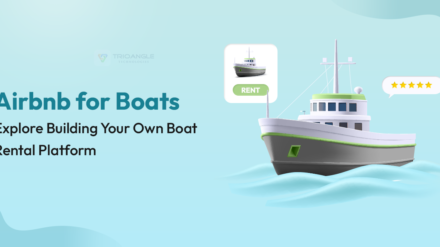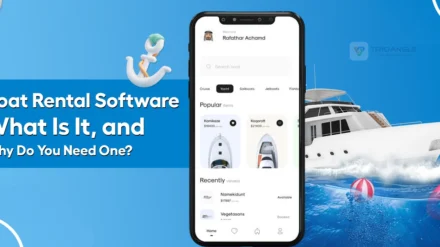Dumpster Rental Business Dilemmas: Tackle Challenges, Build Success!
Did you know, the global dumpster rental market is projected to reach over $484 billion by 2025?
As sustainable practices and environmental consciousness increase among people, dumpster rentals have become fundamental for construction projects, home renovations, and commercial cleanouts, offering vast opportunities for entrepreneurs.
However, like any other industry, dumpster rentals have their own set of challenges. If you’re considering on “how to start dumpster rental business”, understanding these roadblocks is crucial for navigating the rental landscape effectively.
In that case, this blog outlines the top challenges faced in the dumpster rental business and strategies to overcome them.
Here are the Top 6 Challenges in Starting a Dumpster Rental Business
- Choosing the Right Location
- Choosing the Right Dumpster Size
- Handling Disposal Regulations and Prohibited Items
- Logistics of Dumpster Delivery, Placement, and Pickup
- Providing Exceptional Service Throughout the Rental Period
- Maximizing Revenue While Maintaining Competitive Rates
Let’s explore each of them in detail:
1. Choosing the Right Location for Your Dumpster Rental Business
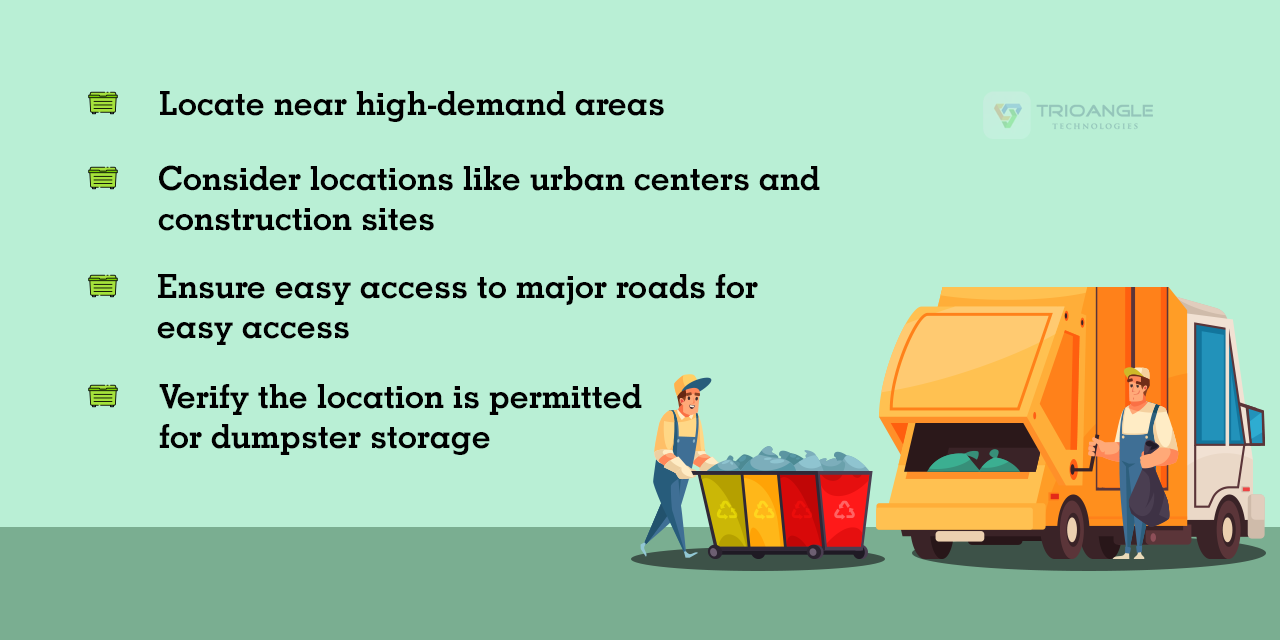
One of the major concerns in starting a dumpster rental business is choosing the proper location for placing your dumpsters. Dumpsters should be placed on private property, but limited space often leads people to place dumpsters on roads. This makes risking penalties.
To avoid this:
- Familiarize yourself with local zoning laws and place the dumpster in a flat, open space on your property.
- If space is limited, obtain a special permit from your municipal office to legally place the dumpster on the road. Ensure the dumpster does not block driveways or pedestrian paths, and handle any complaints politely.
2. Choosing the Right Dumpster Size
Choosing the improper dumpster size is a common mistake. An incorrectly sized dumpster can cost more and be harder to manage.
To prevent this:
- Pre-plan and evaluate your business’s scale to choose the right dumpster size. Consider all materials you’ll need to dispose of.
- Consult a reputable dumpster rental service and ask for their recommendation. They can assess your project and recommend the appropriate dumpster size for your business.
3. Handling Disposal Regulations and Prohibited Items
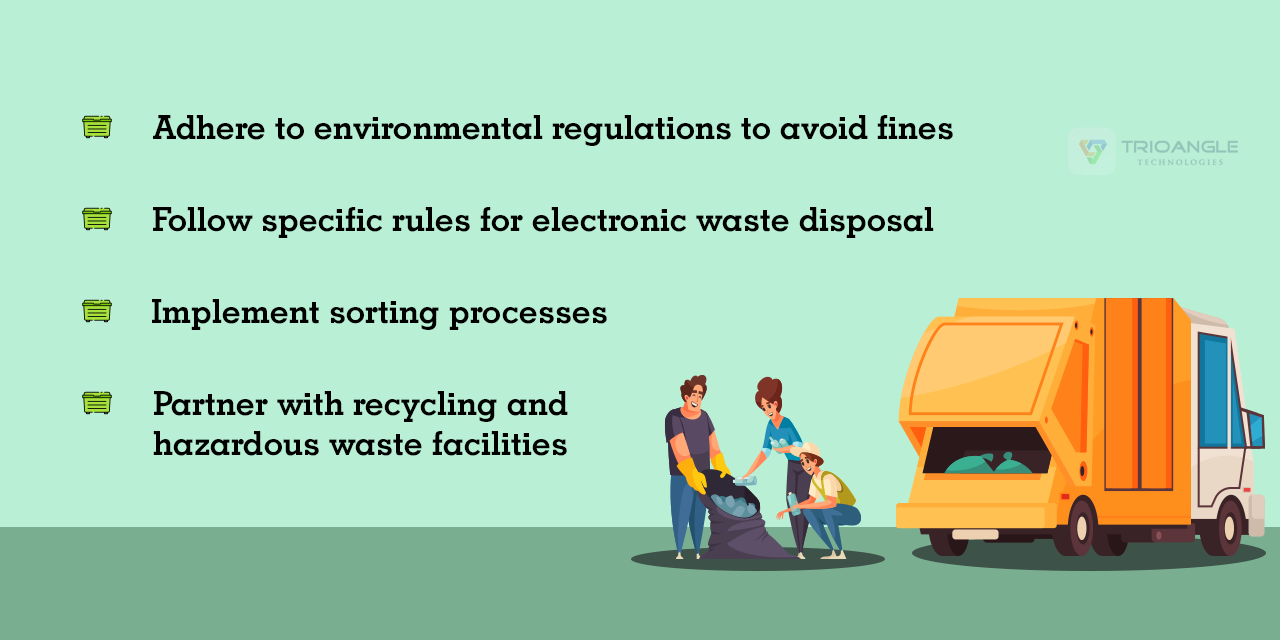
Waste disposal is a complex one, with regulations varying based on location and type of waste. Improper disposal of hazardous waste can lead to legal issues and environmental harm. Many people are unsure about how to identify and handle hazardous waste.
To manage this:
- Maintain a comprehensive list of prohibited items on your dumpster rental website and rental agreements. Communicate these restrictions to your customers during the booking process.
- Partner with local landfills or waste disposal facilities to stay updated on regulations and ensure proper disposal of all collected waste.
4. Logistics of Dumpster Delivery, Placement, and Pickup
Managing the logistics of delivering, placing, and picking up dumpsters can be challenging, especially in congested urban areas or with narrow driveways.
Difficulties with dumpster delivery and placement can lead to customer dissatisfaction and property damage.
Inefficient scheduling can also create bottlenecks and impact overall productivity.
To address these challenges:
- Invest in a fleet of well-maintained delivery vehicles equipped for safe and efficient maneuvering.
- Provide thorough training to your delivery team on proper placement techniques, considering factors like overhead wires and underground utilities.
- Implement dumpster rental software to streamline scheduling and dispatch that optimizes delivery routes and minimizes wait times.
5. Providing Exceptional Service Throughout the Rental Period
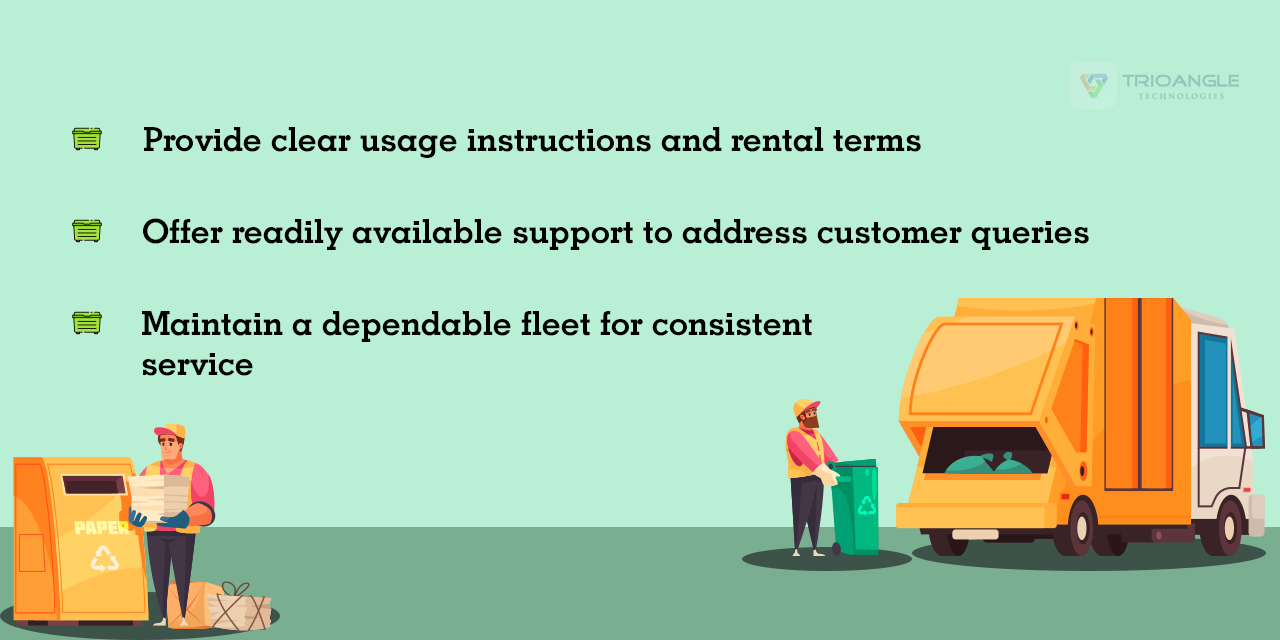
Providing exceptional customer service is important in any industry, and the dumpster rental business is no exception. Unresponsive staff, unclear communication, or a lack of flexibility in meeting customer needs can damage brand reputation and lead to negative reviews.
To effectively navigate this problem:
- Hire and train a customer service team that is knowledgeable, courteous, and responsive to customer inquiries and concerns.
- Develop clear communication protocols to keep your customers informed about delivery schedules, permit requirements, and pick-up procedures.
- Be flexible and willing to accommodate reasonable customer requests whenever possible to enhance satisfaction and loyalty.
6. Maximizing Revenue While Maintaining Competitive Rates
The dumpster rental market can be highly competitive, often leading to price-based competition among businesses. However, this competition can pressure businesses to lower prices. This impacts profit margins. On the other hand, setting prices too high might deter customers.
To maintain the balance between competitiveness and profitability:
- Conduct thorough market research to understand competitor pricing and customer preferences.
- Develop a tiered pricing structure that considers factors like dumpster size, rental duration, and delivery location.
- Offer transparent pricing that clearly outlines any additional charges like overage fees or permit expenses to avoid surprise charges for customers.
Start a Successful Dumpster Rental Business Now!
Starting a dumpster rental business may seem easy, but success hinges on effectively addressing various challenges.
By implementing the strategies outlined above, you can overcome these obstacles, differentiate your business, and provide exceptional service to your customers.
To position your business for success, invest in developing a rental script that can save valuable time and money in setting up your dumpster rental startup.
So why wait?
Let’s Turn Your Entrepreneurship Dream into a Thriving Reality!

